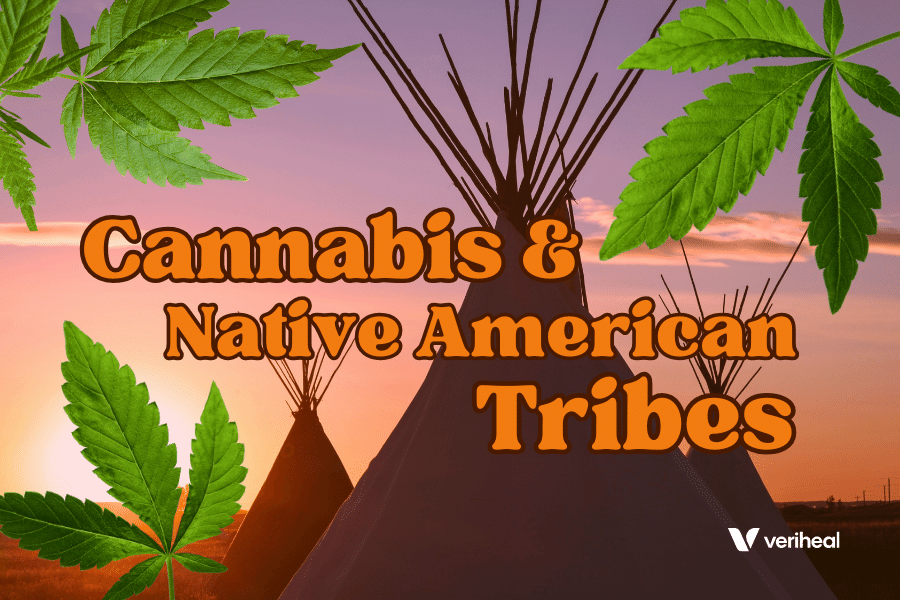Cannabis has played an important role in the history of many Native American tribes. Today, the domineering power the U.S. Federal government holds over these tribes has made it trickier to keep these traditions alive. But, not impossible.
Explore the fascinating history and complexities of cannabis use among Native American tribes, from its historical and cultural significance to the modern challenges and opportunities that come with tribes entering the cannabis industry.
The Cole Memorandum
In 2013, the U.S. Department of Justice issued the Cole Memorandum. The memo offered guidance to federal prosecutors on handling cannabis enforcement in states and tribal territories that had legalized cannabis. It stated that federal law enforcement should not prioritize prosecution in states and tribes that have established effective regulatory systems.
However, it’s important to note that federal law still considers cannabis illegal, classifying it as a Schedule I controlled substance. This means that the federal government technically has the authority to enforce federal cannabis laws on tribal lands as well. The situation could change based on shifts in federal policy, legal interpretations, or changes in leadership. In practice, the federal government has largely taken a hands-off approach when tribes have chosen to legalize or regulate cannabis. As long as those moves were made in compliance with both tribal and state laws, of course. Nevertheless, it’s recommended that tribes consult with legal experts to navigate the complexities of today’s legal landscape.
Historical Use of Cannabis in Native American Tribes
Some Native American tribes historically used cannabis for medicinal, spiritual, and cultural purposes. For example, the Lakota Sioux used cannabis in their sacred rituals. The Oglala Lakota leader, Black Elk, mentioned the use of cannabis as part of their spiritual practices. Cannabis has been used by some tribes in religious ceremonies, similar to the way peyote is used by the Native American Church (NAC). NAC combines Christianity with traditional Native American beliefs — using peyote as a sacrament. Some tribes have incorporated cannabis into their ceremonies in a similar manner.
Why You Should Get Your Medical Marijuana Card
Veriheal has satisfied millions of patients nationwide by giving them access to these benefits
- Larger purchase limits
- Peace of mind
- Enhanced legal protection
- Access to higher potency strains
- Save up to 25% on cannabis purchases
- Skip the line at the dispensary
The legal status of cannabis varies between states and federally. Some tribes are located in states where cannabis is legal for medical or recreational use, and they may choose to engage in cannabis-related activities in line with state laws. However, even in states where cannabis is legal, tribes must consider their own jurisdiction and federal laws. Many Native American tribes in the United States have a degree of sovereignty, allowing them to establish their own laws and regulations on their lands. This has led some tribes to explore the potential economic benefits of the cannabis industry, including cultivation and distribution.
Tribes that want to engage in the cannabis industry face a range of challenges, including navigating the complex legal landscape, addressing potential conflicts with federal law, and balancing cultural and economic considerations. There are also concerns about the potential negative impacts of cannabis use, particularly if not managed responsibly. It’s important to recognize that there is no single “Native American perspective” on cannabis. Different tribes have their own histories, cultures, and attitudes toward the plant. Some may embrace it as part of their heritage, while others may view it more cautiously.
Tribes Make Strides in the Cannabis Industry
In September 2021, Native American tribes in states, such as California, Colorado, and Washington, entered the cannabis industry and established cannabis businesses on their reservations. These tribes have taken advantage of their tribal sovereignty, which grants them a certain level of autonomy in governing their lands and making economic decisions.
It’s important to note that the level of involvement and specific details can vary among tribes, as it depends on tribal sovereignty, state laws, and individual tribal decisions. Here are a few examples of tribes that have ownership or participation in the cannabis industry:
- Squaxin Island Tribe (Washington): owns and operates the Elevation Cannabis Company, a cannabis retail store on their reservation.
- Suquamish Tribe (Washington): owns and operates Agate Dreams, a cannabis retail store and medical marijuana access point.
- Santa Ysabel Tribe (California): owns and operates the Mountain Source cannabis dispensary and has been involved in cannabis cultivation and manufacturing.
- Red Lake Nation (Minnesota): is exploring the potential for medical cannabis production and distribution on their reservation.
- Akwesasne Mohawk Nation (New York): has explored the possibility of entering the cannabis industry and has held discussions regarding potential partnerships or ventures.
Author, Share & Comments
















